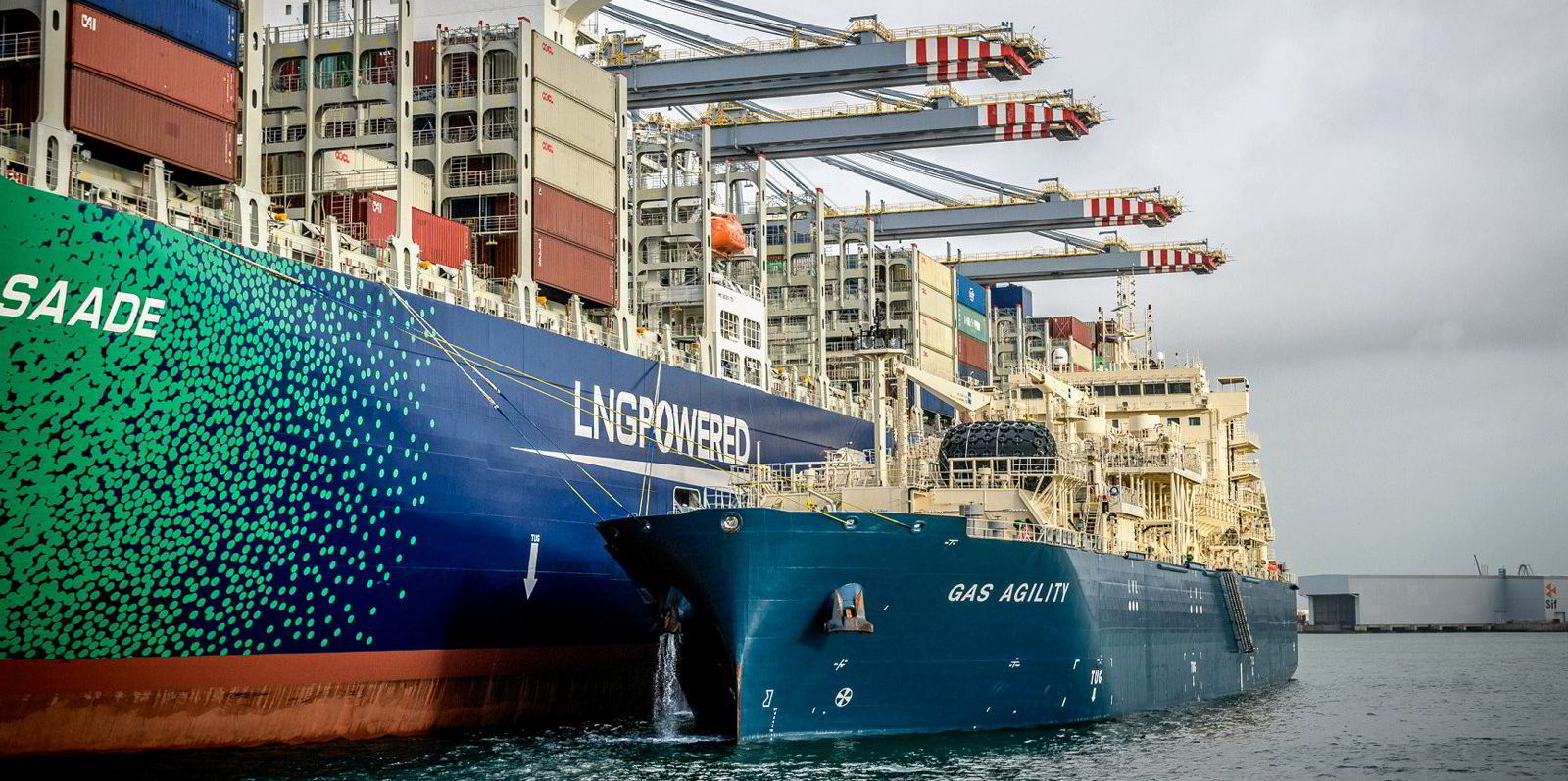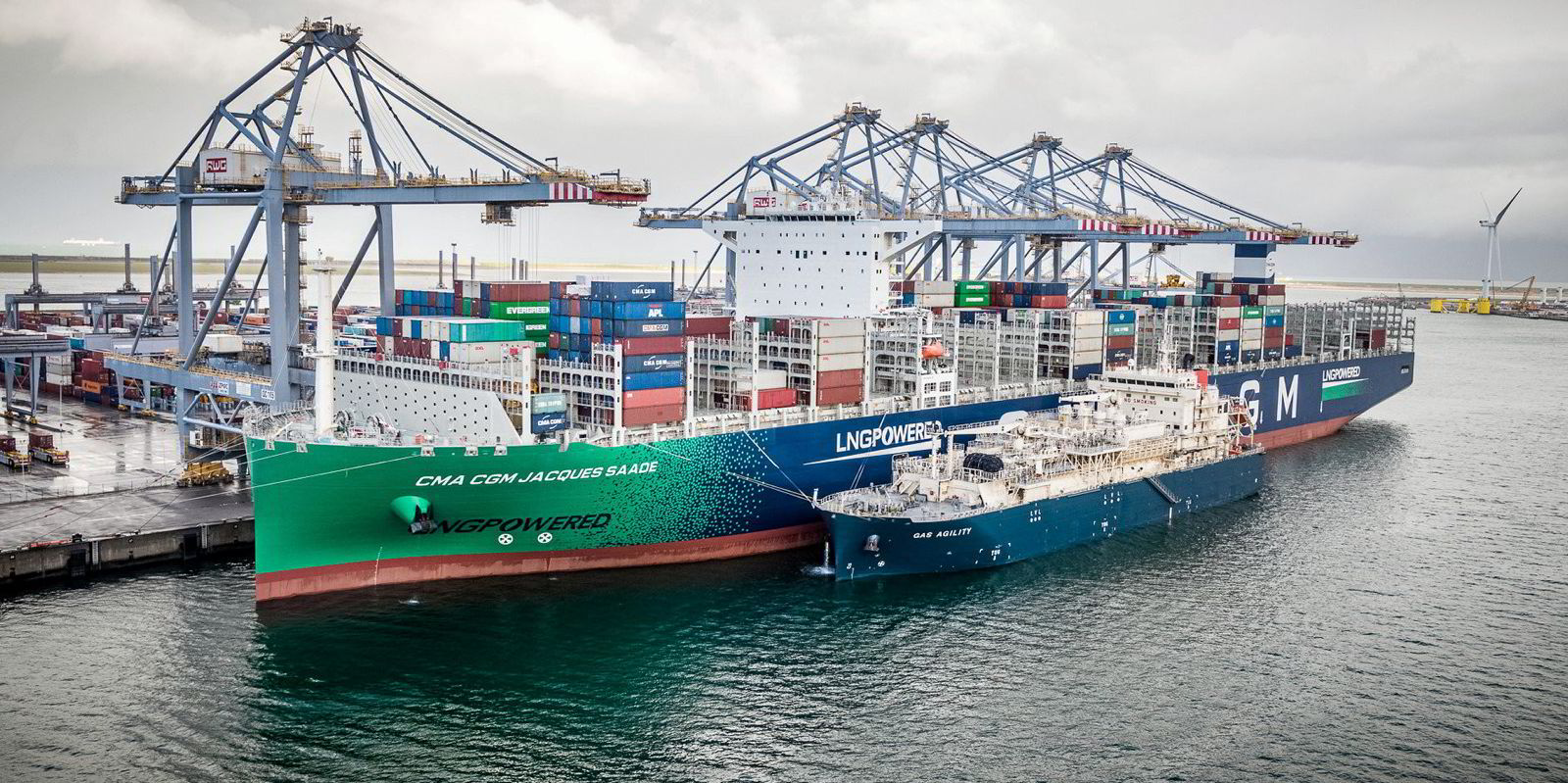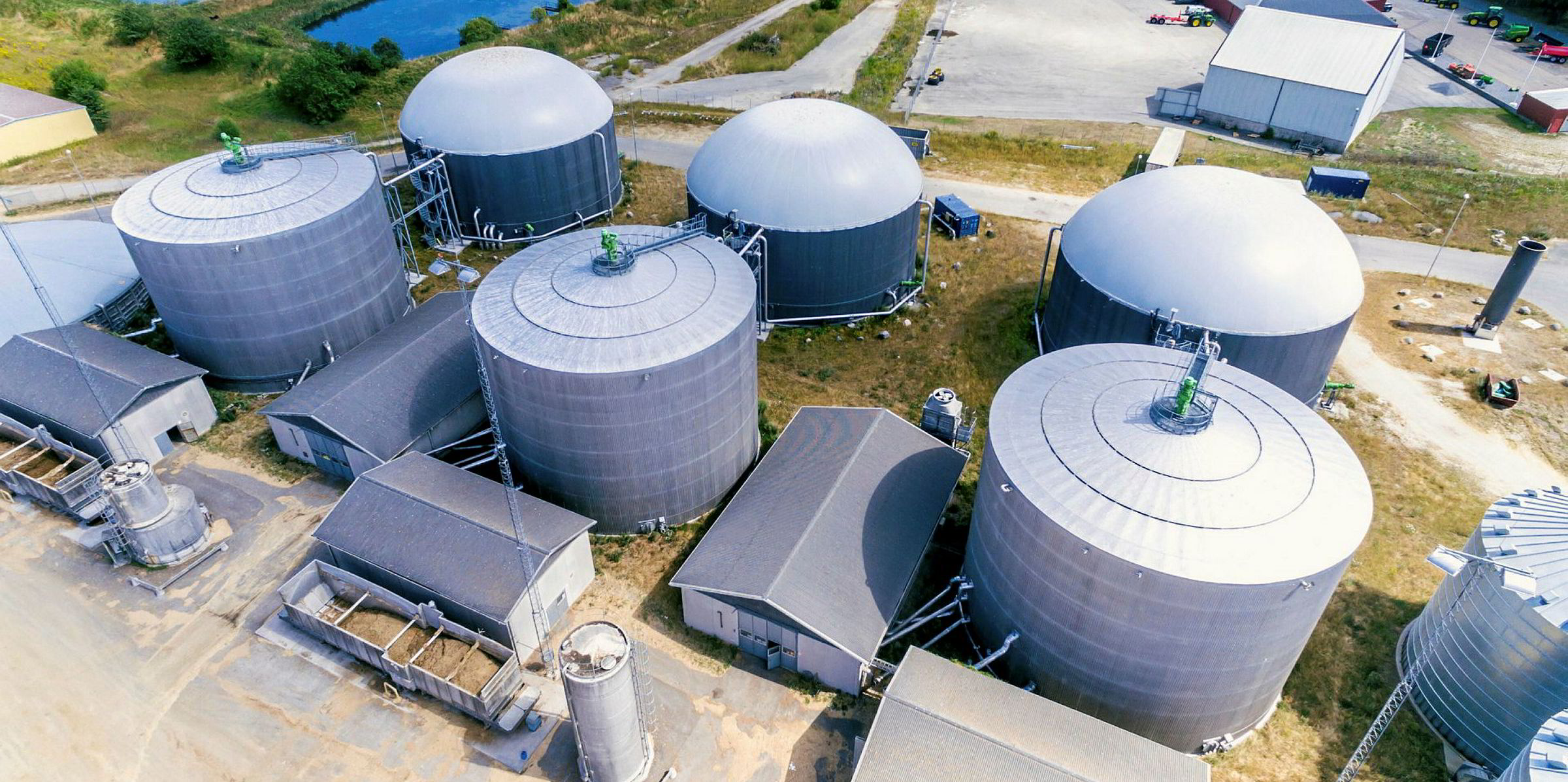SEA-LNG has produced analysis showing that using 10% of bio-LNG in bunkers will give an extra two years’ compliance with a key measure used to secure preferable funding under the Poseidon Principles.
The report by the industry coalition focuses on the impact on a ship's Annual Efficiency Ratio (AER) of using bio-LNG as a drop-in fuel for LNG bunkers.
The Poseidon Principles offer a framework for shipping lenders to finance vessels in line with the International Maritime Organization target to halve greenhouse gas (GHG) emissions by 2050.
The principles measure progress towards this goal by using AER as a scoring tool. The ratio requires a vessel’s aggregate carbon emissions intensity to improve over this 30-year time frame.
SEA-LNG said using bio-LNG as a drop-in fuel “extends the average seven-year additional competitive advantage for Poseidon Principle loans achieved with LNG alone”.
It said LNG cuts GHG emissions by up to 21% on a well-to-wake basis, and up to 28% if measured tank-to-wake.
SEA-LNG looked at use of conventional LNG plus bio-LNG from a zero-carbon, sustainable source. It compared that to using conventional fuels such as heavy fuel oil, very low sulphur fuel oil and marine gasoil.
It stressed that bio-LNG is compatible with existing LNG infrastructure and technologies and can be blended with LNG.
Viable pathway
“It represents one of the most viable pathways to decarbonisation currently available to owners,” the group said.
SEA-LNG investment committee chairman John Hatley said: “As banks increasingly align with green finance principles, LNG offers benefits for emissions reduction and provides an ‘extended compliance runway’ for Poseidon Principle sustainability-linked loans. An investor preserves more favourable financing terms compared to conventional marine fuels.
“The use of bio-LNG as a drop-in fuel may extend this runway even further. This means lower ship emissions now and a compliance extension that yields long-term competitive advantage.”
SEA-LNG previously produced a report concluding that bio-LNG is a scalable solution for the maritime sector. Supplies are potentially able to exceed the future demand of the global shipping fleet at commercially competitive prices to other low- and zero-carbon fuels, the group found.
But the fuel, which is largely produced from agricultural waste, is currently much more expensive to produce.
SEA-LNG said its analysis is backed up by an International Energy Agency report that said feedstocks available for sustainable production of biogas and biomethane are huge but policies are needed to create a global market place for the fuel.







